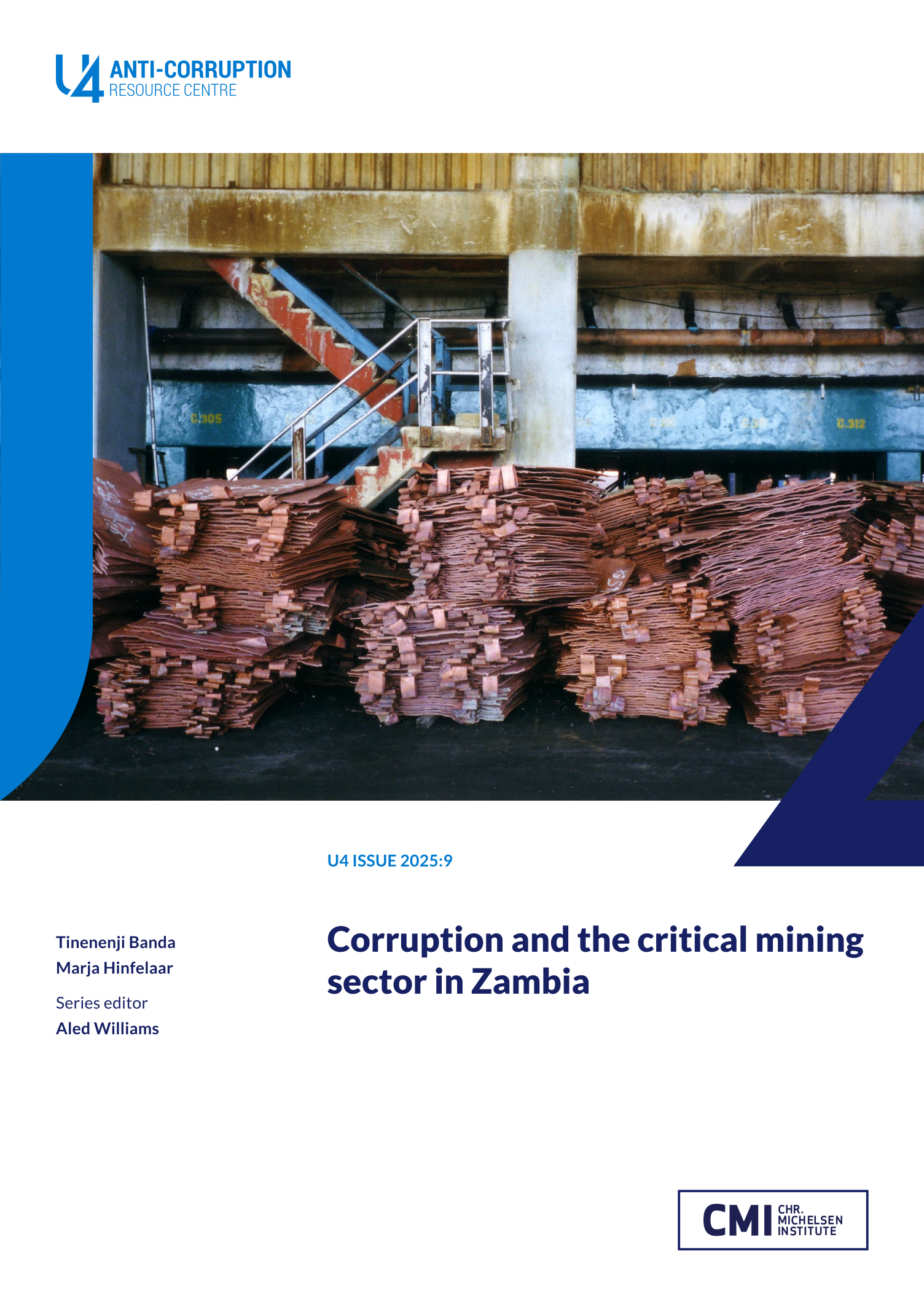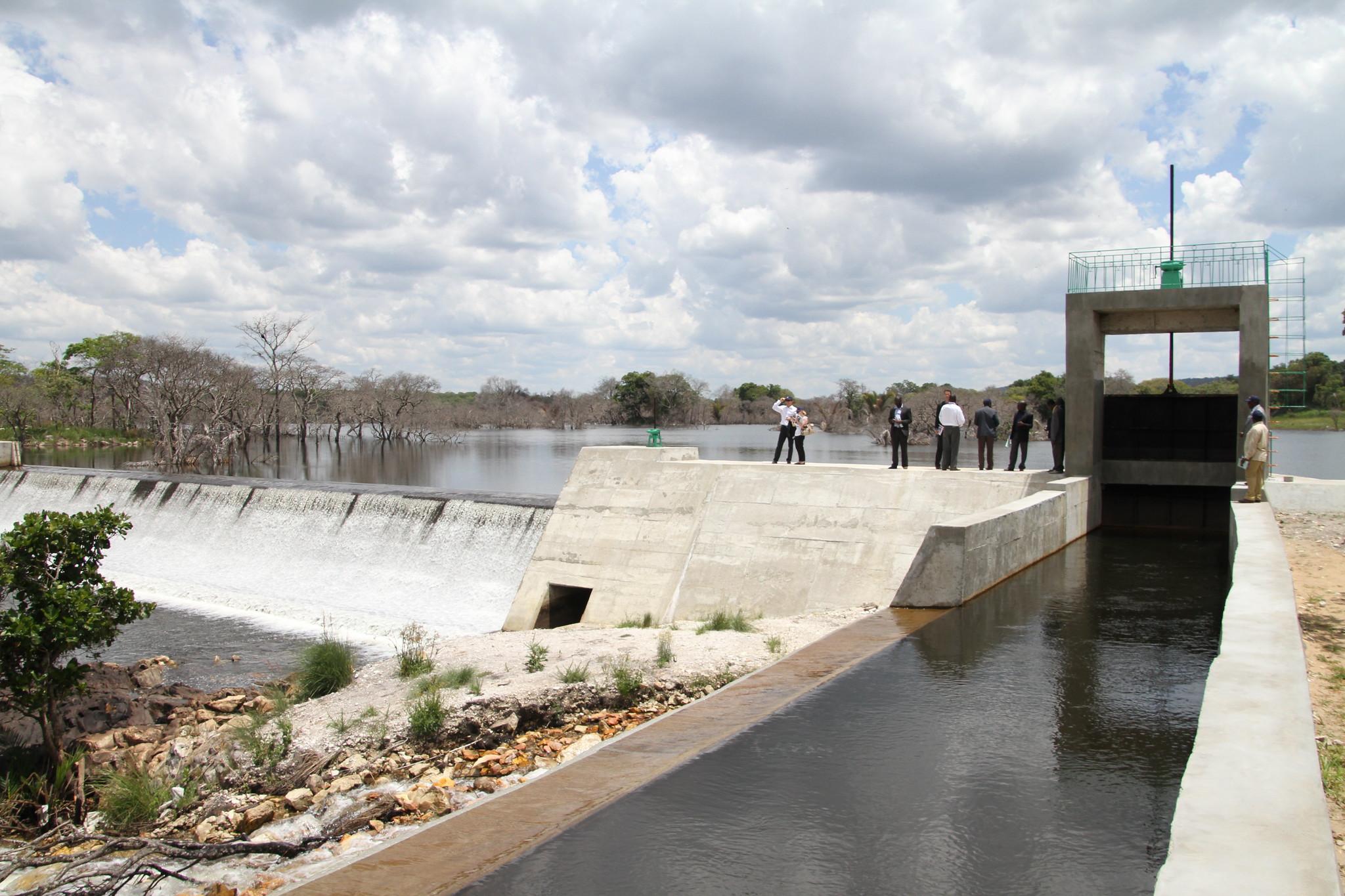Main points
- Intense competition for critical mineral value chains results in an increased risk of revenue leakage due to corruption and tax evasion. Illicit financial flows (IFF) threaten Zambia’s economic development and undermine its fiscal systems.
- Zambia has formal commitments in place, such as laws, regulatory institutions and international commitments, to battle corruption and IFFs, but the institutional architecture is fragmented and inadequately enforced. Inter-agency collaboration is required to address these challenges.
- Through a literature review, including a law and policy review, and a stakeholder mapping exercise with 21 key informant interviews with government, civil society, academic and industry representatives, we constructed a qualitative understanding of the key risk factors for corruption and IFFs.
- Significant factors are the lack of a transparent, coherent and disciplined mining licensing system; a non-transparent bidding process; public-private collusion across value chains; abuse of intermediaries and agents; and weak regulation in the sector.
- Opportunities for interventions are enhanced systems for disclosure and due diligence, reform of the Mining Cadastre, support for evidence-based policymaking, support for the organisation of the artisanal mining sector, enhanced quality of civil society organisation public discourse, and enhanced collaboration in anti-corruption agencies, while keeping political pressures in mind.



